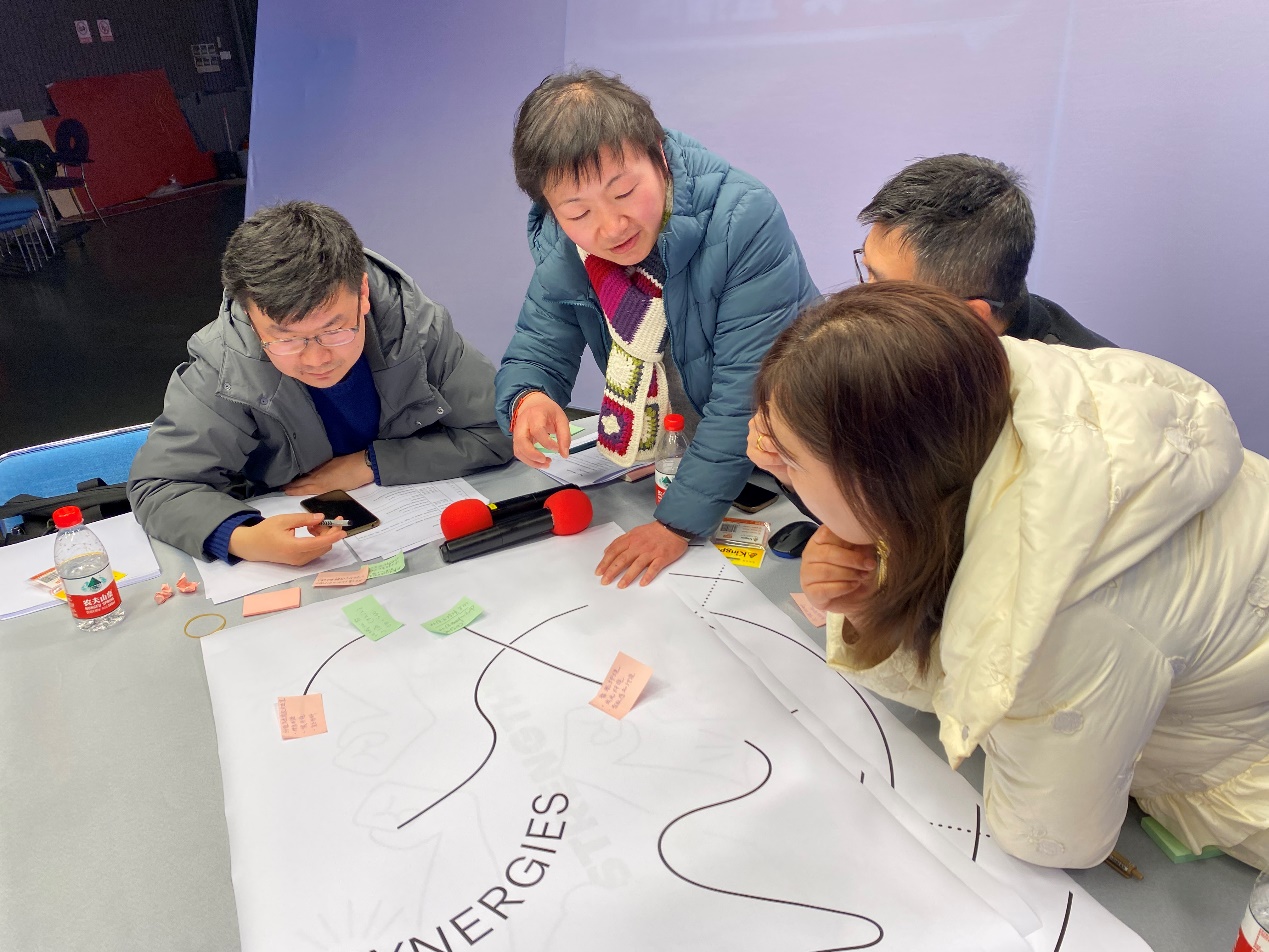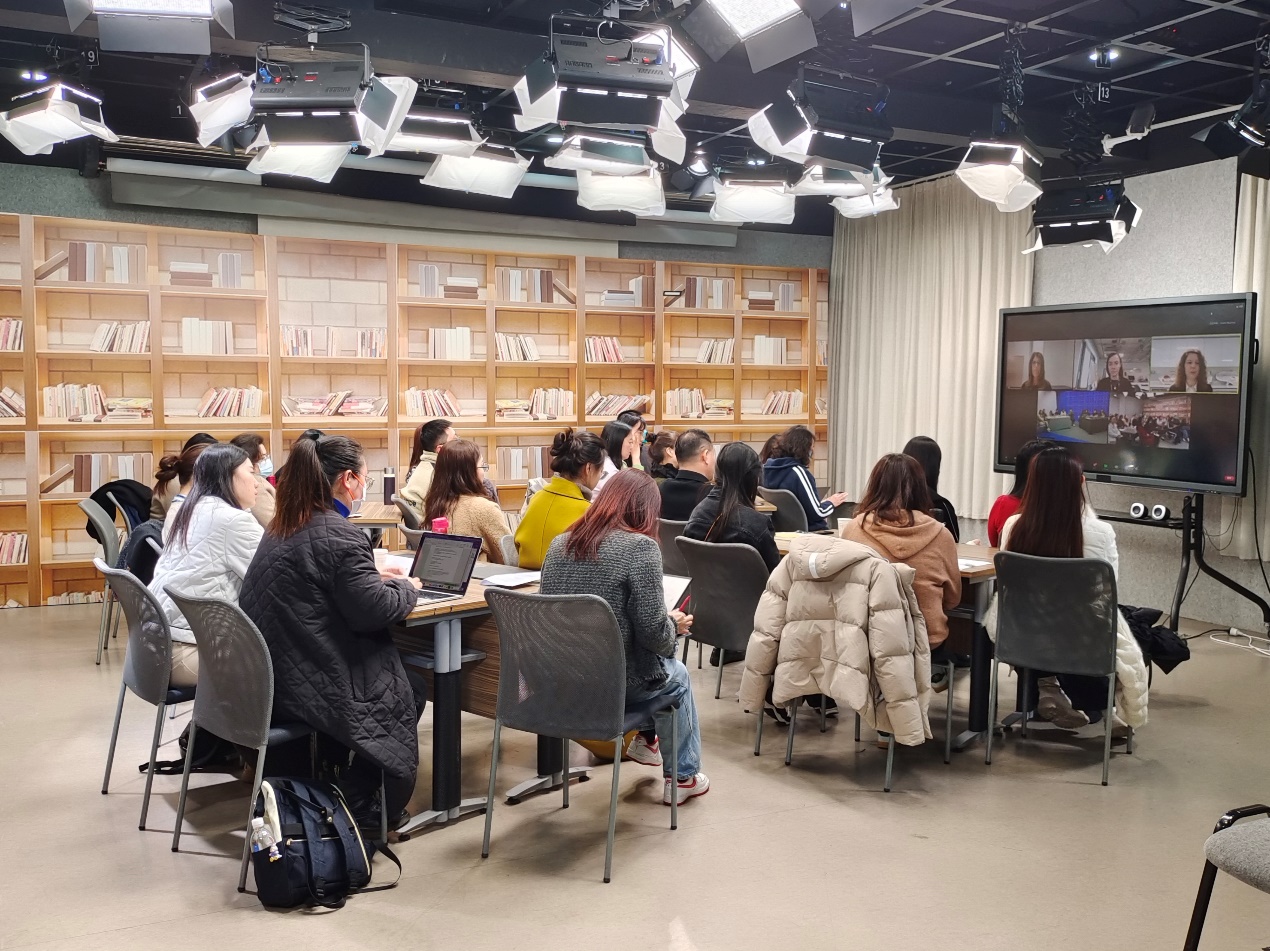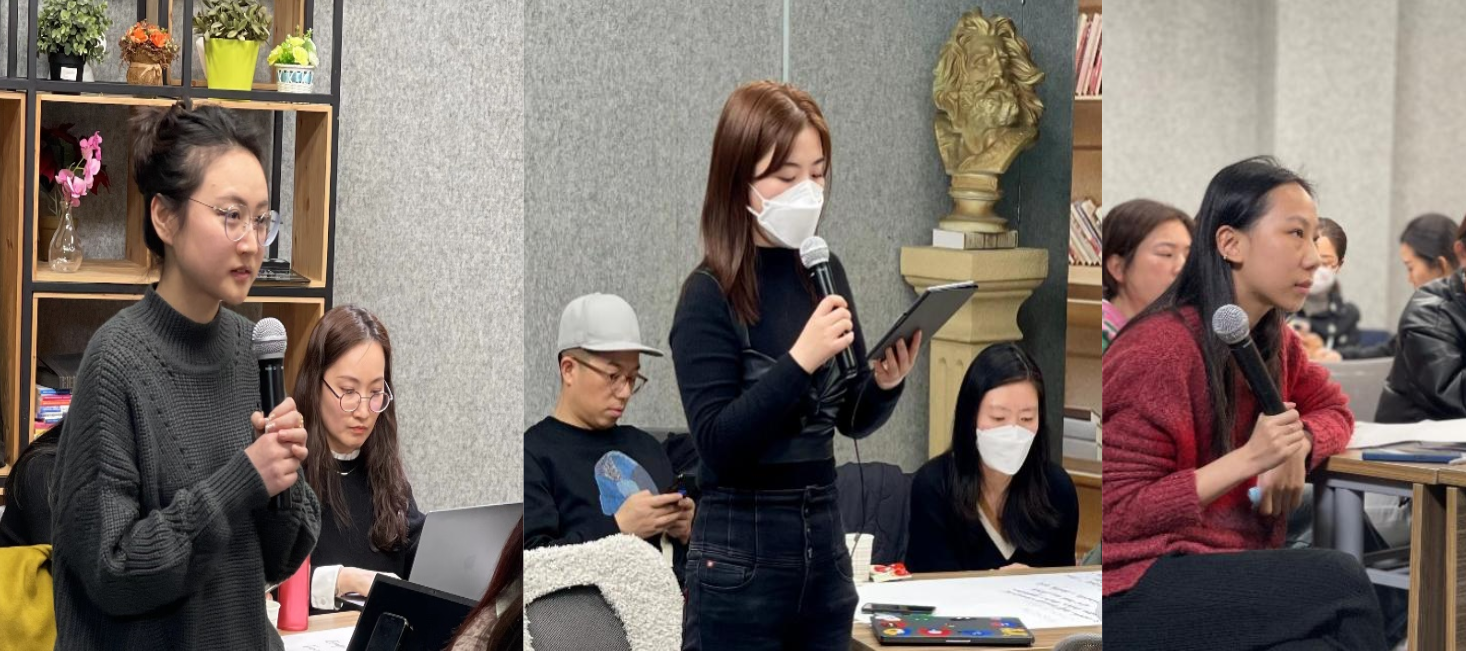The 5-day Donghua University-Royal College of Art (RCA) academic workshop was recently held online and offline. Focusing on disciplinary advantages and multidisciplinary integration, it fully discussed how to break disciplinary boundaries and create a collaborative education model of industry-education integration. The workshop has attracted teachers and alumni from a number of DHU colleges, including Fashion & Design, Fashion & Innovation, Mechanical Engineering, Materials Science &Engineering, and Continuing Education. The workshop was organized by DHU’s International Cooperation Office and Shanghai International College of Fashion and Innovation (SCF).
. 
Scholars from DHU and RCA presented nearly 10 informative and insightful lectures. Tatiana Schofield, Head of Knowledge Exchange at RCA, and Emma Wakelin, RCA’s Director of Research and Innovation, introduced RCA’s four interdisciplinary research centers and highlighted how universities collaborate with enterprises to create more markets and more environmental and social value in the field of art and design. They also envisioned innovation and research focus for the next five years; Prof. Sharon Baurley, Dr. Bruna Petreca, and Dr. Miriam Ribul from the Textiles Circulation Centre discussed how to communicate across disciplines and advance research in key areas. Dr. Nadia Danhash, Innovation RCA Director, explained how college incubators could make RCA the cradle of high-quality ideas, how incentives and support could commercialize projects, and how intellectual property rights could be better protected. SCF Prof. Zheng Rong, Hou Aihua, CDO of the Shanghai-based ICICLE Group, and Wu Jing, Associate Professor of DHU’s Innovation Center for Textile Science and Technology, shared industry-education-research and international cooperation projects, leading to a heated discussion on deep cooperation among governments, schools and enterprises, and curriculum expansion and social service innovation through interdisciplinary multiparty collaboration.


During the workshop exchange, the members were divided into five groups. Bahbak Hashemi-Nezhad assigned each group the task of sharing and integrating the group’s strengths within the groupand simulating the establishment of a new organizational system. This process saw the groups’ thorough deliberation and lively discussion. Teachers from different disciplinary backgrounds exchanged and presented their ideas with confidence. In this process, Zowie Broach and Anne Toomey sharedthe application of artificial intelligence and the digital industry to fashion and design.
The group projects, considered innovative and feasible, were recognized by the experts. The teachers who attended the workshop remarked that the cross-discipline, cross-college, and cross-nation academic exchange was helpful for DHU and RCA teachers to better understand interdisciplinarity, design innovation and entrepreneurial ideas; it also built a bridge of cooperation between the teachers who had different disciplinary backgrounds and different ways of thinking.